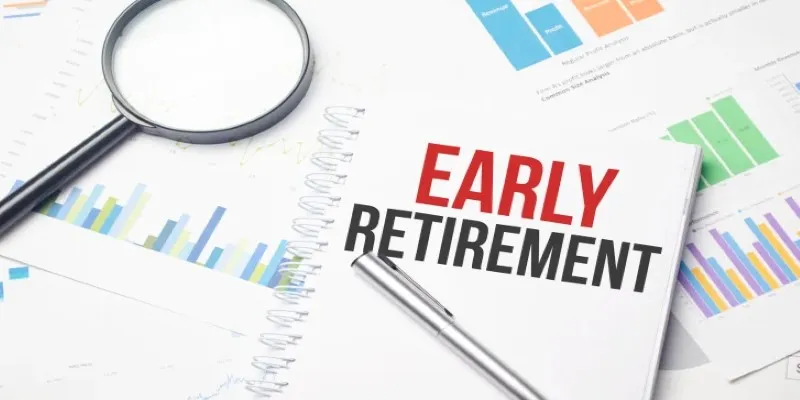When Can I Retire If I Was Born in 1960? Understanding Your Retirement Age
Retirement is a goal many people aspire to, but determining the right time to retire can be challenging. For those born in 1960, retirement depends on several important milestones, particularly your eligibility for Social Security and Medicare. Understanding these milestones can help you plan for a more secure and confident future. So, when should you plan to retire if you were born in 1960?

The answer isn’t as simple as picking a random date; it involves meeting specific age thresholds set by the government. Let’s break down the key milestones you need to keep in mind.
Social Security Retirement Age for Those Born in 1960
If you were born in 1960, your full retirement age (FRA) for Social Security benefits is 67. The full retirement age is when you can begin receiving your monthly Social Security benefits in full without any reductions. The government sets this age based on your birth year, and for anyone born in 1960 or later, it’s set at 67.
Bear in mind that you can apply for Social Security benefits starting at age 62. However, claiming benefits before reaching your FRA will permanently reduce your benefit amount by up to 30%. If Social Security is your primary income source, it may be wise to wait until your FRA to avoid reductions in your retirement benefit.
Another important factor is delayed retirement credits. For each year you delay claiming your Social Security benefits past full retirement age, your benefit amount increases by about 8% annually, up to age 70. This can significantly boost your monthly check, so it’s worth considering if you’re in good health and can continue working beyond age 67.
Medicare Eligibility at 65

While Social Security is a crucial aspect of your retirement plan, healthcare is equally important. Medicare eligibility begins at age 65, regardless of when you start collecting Social Security. This is a vital milestone, especially if you plan to retire before turning 67.
Medicare is the federal health insurance program for people aged 65 or older, and it’s essential to have this in place as you transition into retirement. If you decide to retire at age 62 and lack health insurance from other sources, you’ll need alternative coverage until you qualify for Medicare.
Planning for healthcare costs in retirement is crucial. Although Medicare covers many expenses, supplemental insurance might be necessary for out-of- pocket costs. This includes premiums, deductibles, and co-pays, so look into Medicare Advantage plans or Medigap policies as retirement approaches.
The Impact of Your Personal Finances on Retirement Timing
While Social Security and Medicare set important benchmarks, your personal finances play a bigger role in determining when you can retire. There’s no one-size-fits-all answer because everyone’s financial situation is different. Some people may have enough savings in their retirement accounts to retire early, while others may need to work beyond their full retirement age to maintain their lifestyle.
Consider how much you have saved in retirement accounts like 401(k)s, IRAs, and other investments. Factor in any pension plans, part-time income, or passive income sources you have. The more you can rely on other income sources, the earlier you can potentially retire.
Creating a retirement budget that accounts for both fixed expenses (like housing and utilities) and variable expenses (like travel or leisure activities) can provide a clearer picture of how much you need to save. Retirement calculators and consultations with a financial advisor can help you estimate your retirement expenses and determine if your current savings are on track.
Flexibility and Planning for an Early Retirement

If you’re considering retiring before reaching the full retirement age of 67, there are several factors to consider. While early retirement can be a dream come true for some, it comes with both pros and cons, particularly depending on your financial situation.
One of the biggest advantages of early retirement is the ability to pursue personal passions or hobbies that you’ve put off during your working years. However, it can also have psychological and emotional implications. For many, work provides structure, purpose, and social interaction. Retiring too early without a plan can lead to boredom or feelings of isolation, so it’s essential to have activities or projects lined up. Additionally, retiring before the age of 65 means you’ll have to manage healthcare on your own until you become eligible for Medicare, which can be costly.
Early retirement often requires a solid strategy, with many turning to the FIRE (Financial Independence, Retire Early) movement. FIRE involves aggressively saving, typically 50% or more of income, and investing in low- cost index funds, real estate, or other growth vehicles. The goal is to accumulate enough wealth to live off investments long before the traditional retirement age. Achieving this requires significant discipline and a frugal lifestyle in the years leading up to retirement.
Conclusion: Timing Your Retirement
For those born in 1960, retirement isn’t just about reaching age 62. Your full retirement age for Social Security is 67, and while you can claim benefits earlier, waiting will maximize your monthly payout. Medicare eligibility begins at age 65, providing crucial healthcare coverage. To retire on your terms, balance these milestones with your financial situation. Whether you retire early or wait for full benefits, careful planning now will give you more flexibility later. The more you prepare, the better positioned you’ll be when the time comes to step away from work.










